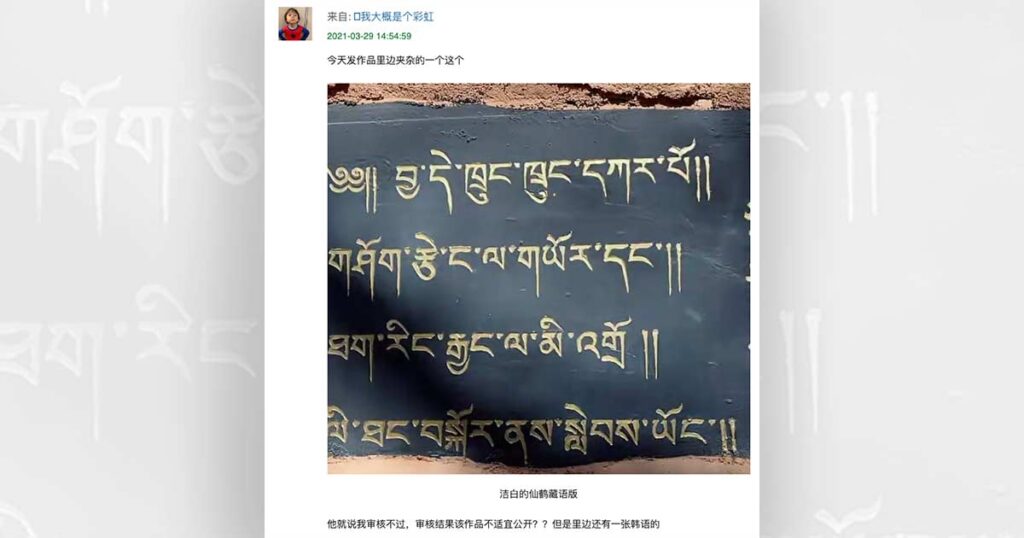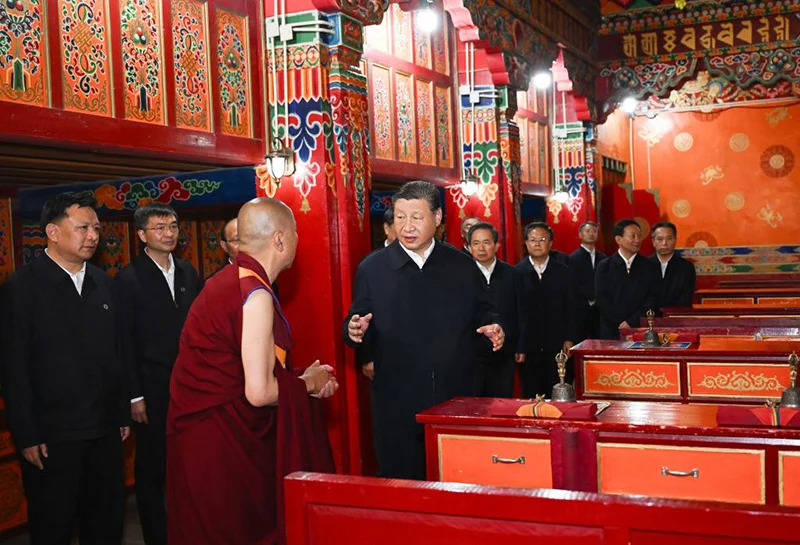-by International Campaign for Tibet
The United States Commission on International Religious Freedom’s 2024 annual report, published May 1, highlights the deterioration of religious freedom in Tibet due to the Chinese government’s intensified suppression and “Sinicization” of Tibetan Buddhism. Sinicization is a Chinese policy that aims to bring Tibetan Buddhism under the control of the Chinese Communist Party.
China a country of particular concern
Speaking on behalf of USCIRF during the virtual launch of the 2024 annual report, the commission’s vice-chair, Frederick A. Davie, recommended the US State Department designate China as one of the 17 countries with “country of particular concern” (CPC) status in terms of religious freedom violations.
The commission’s main findings reveal increased surveillance and security measures on Tibetan Buddhists, leading to restrictions on their peaceful religious activities. Tibetan Buddhists have been arrested and imprisoned for engaging in such activities or for possessing materials related to the Dalai Lama. Some have been placed in “political re-education” camps to prevent self-immolation, with Tibetan Buddhist monks dying in prison.
The commission’s Freedom of Religion or Belief Victims List, an online database, includes 93 Tibetans.
Forced assimilation of Tibetan children
Highlighting the forced separation of over 1 million Tibetan children from their families in state-run boarding schools and the government’s measures to stop Tibetans from freely practicing their Buddhist faith, the commission spotlighted that:
“The government separated one million Tibetan children from parents, putting them in state-run boarding schools to forcibly assimilate them. Some local authorities banned parents from teaching religion to Tibetan children. The government controlled the ordination of Tibetan monks and reiterated its intent to interfere in the Dalai Lama’s reincarnation and appoint his successor.
Human rights sanctions
Commissioner Susie Gelman emphasized the commission’s role and the US government’s implementation of targeted human rights sanctions in 2023, including sanctions on Chinese officials and entities. As an example, she cited the Biden administration’s sanctioning of Chinese officials “who forcibly separate Tibetan children from their families and seek to eliminate religious freedom in Tibet.”
Sinicization of religion
The Commission identifies the Chinese government’s multifaceted “Sinicization of religion” policy as the significant factor in the deterioration of religious freedom under which all major religious groups are forced to obey the Chinese Communist Party and its ideology and policies.
The commission in its annual report states that “Sinicization requires groups to follow the CCP’s Marxist interpretation of religion, including by altering religious scriptures and doctrines to conform to that interpretation.” Highlighting the effects of the Chinese government’s Sinicization of religion policy in Tibet, the commission states that “Sinicization entailed forced assimilation of local populations that threatened their religious and cultural identities.” Click here to read more.





